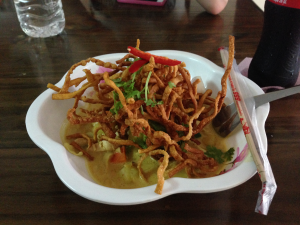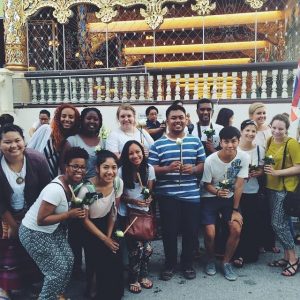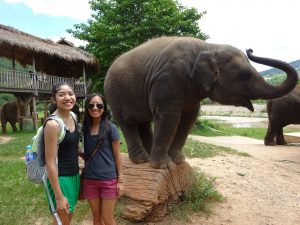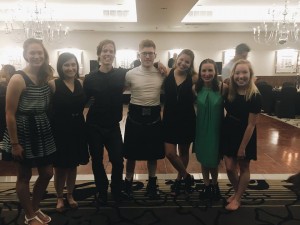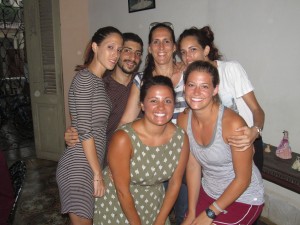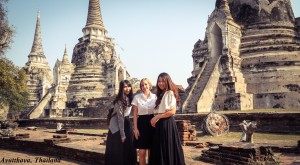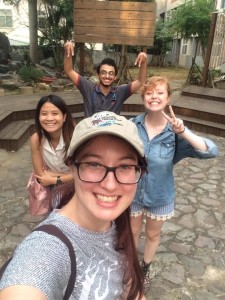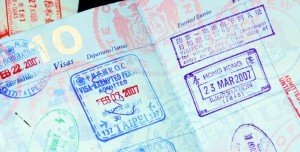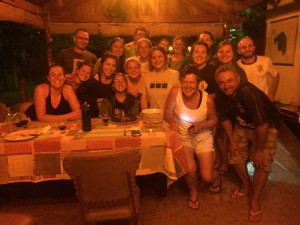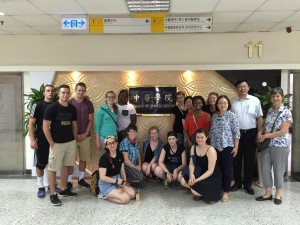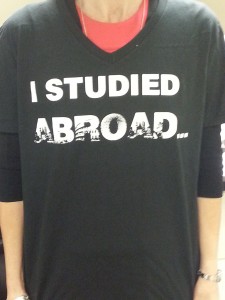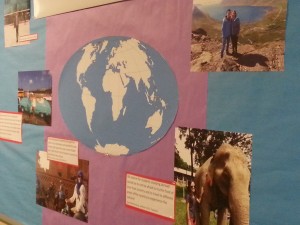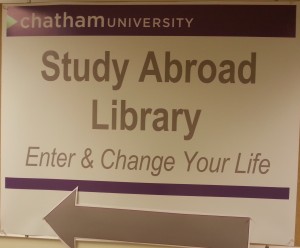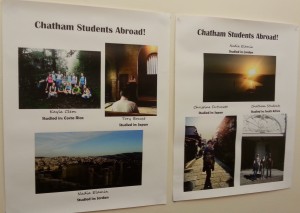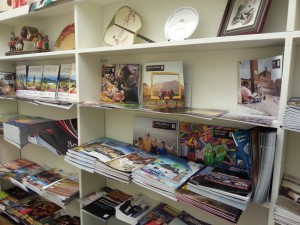by Karin Chipman, Study Abroad Coordinator

In December, I had the pleasure of participating in a five-day Higher Education Workshop jointly sponsored by the Embassy of Spain -Trade Commission Miami and Eduespaña (Study in Spain). This was a wonderful opportunity to meet with many institutions, visit numerous Spanish campuses, and learn more about what Spain can offer Chatham students.
The workshop began in the capital of Spain and its largest city, Madrid. The first order of business was an official welcome from the US Embassy and the Spanish Trade Commission. Next, over the course of long two days, along with study abroad professionals from thirteen other US schools, I met with institutions and language schools from all over Spain. Each Spanish institution had twenty minutes to explain what makes their school unique and why Chatham students should study with them.
In the afternoons we toured local campuses in Madrid, including the Universidad Antonio de Nebrija (http://www.nebrija.com/), which offers some unique English courses during summer and semester study as well as a Spanish and internship option for a minimum of two months.

Midweek we traveled to Barcelona, Spain’s second largest city and the capital of the Catalonia region. There we visited several institutions, including the Universitat de Barcelona (www.eh.ub.edu), founded in 1450 by King Alfonso V. Our group was lucky enough to visit the university’s Special Collections library and view rare and beautifully illustrated medieval texts.
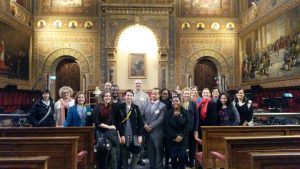
On our last day in Catalonia we traveled south to Tarragona, a picturesque city from the Roman era, and the Universitat Rovira i Virgili (http://www.urv.cat/en/). In addition to touring the city’s ancient ruins, we visited the university’s conservation laboratory and saw paleontological artefacts from their research sites in Spain and other parts of Europe and Africa.

Obviously, Spain is a great location to learn or improve your Spanish. More and more, however, even if students haven’t studied Spanish, there are many opportunities to study various subjects in English. As just a few examples:
At the Universidad de Deusto in Bilbao (www.cide.deusto.es), students can study business, international relations, culture and Spanish language courses.
At the Universidad Pablo de Olavide in Seville (https://www.upo.es/intl_EN/Programs/Hispanic_Studies/courses/index.jsp), students can study business, communications, science, and history in English, as well as study Spanish at every level.
And at CETT, the School of Tourism, Hospitality and Gastronomy of the Universitat de Barcelona (www.cett.es), courses are offered in English in culinary arts, business, leadership and sports management.
I studied in Spain myself when I was an undergraduate and the country was just as welcoming on this visit as when I was a student. Spain is an affordable destination compared to most of Europe, Spanish people are very friendly and the food is delicious. Do yourself a favor and study in Spain!
When will you study abroad? For more information about studying in Spain or other study abroad options, study abroad vouchers, scholarships and the study abroad process, please contact internationalaffairs@chatham.edu or visit us at the Office of International Affairs in Falk Hall, lower level.


